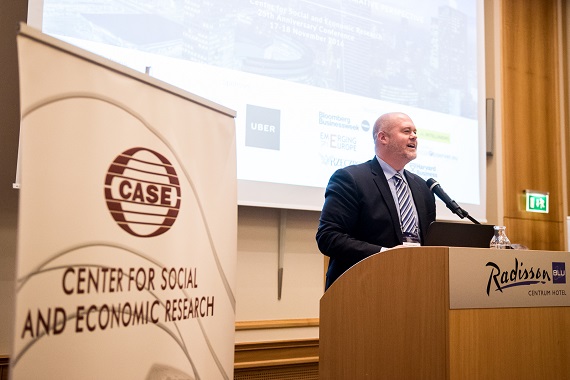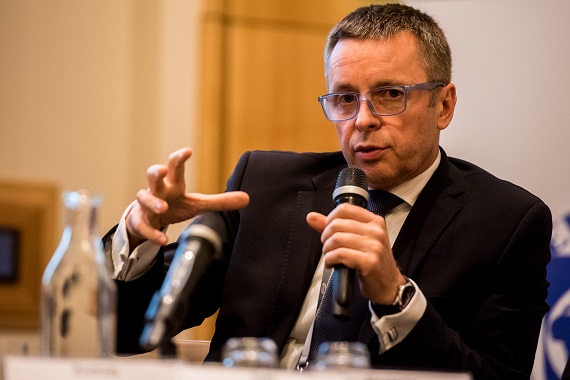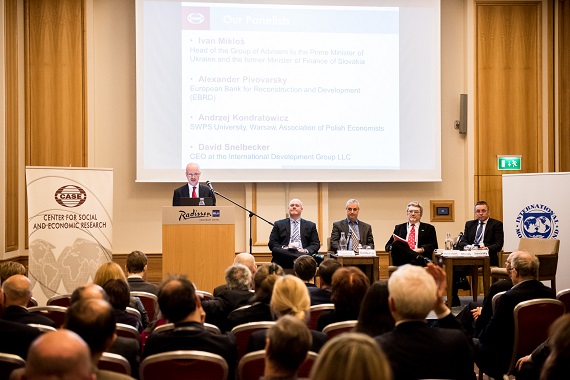The Future of Europe is Ukraine
CASE’s expertise in the transition of post-communist states has been central to the organization since its very beginning in 1991. Twenty-five years later, CASE paid tribute to this heritage by devoting one of the first sessions of its 25th Anniversary Conference to a comparative analysis of the transition of Ukraine and Poland. In response to the leading question of the conference, what is the future of Europe, the session on Poland and Ukraine answered resoundingly that the future of Europe IS Ukraine.
Session speakers included Dr. Christopher Hartwell, President of CASE, Mr. Ivan Mikloš, former Finance Minister of Slovakia, Dr. Alexander Pivovarsky, Lead Economist at the European Bank for Reconstruction and Development, Professor Andrzej Kondratowicz, Professor of Economics at the SWPS University in Warsaw, and Dr. David Snelbecker, CEO of the International Development Group.

The speakers emphasized the importance of institutions to economic and social development. Dr. Hartwell presented the results of his recent research, which demonstrate that the presence of checks and balances in the Polish political system has, historically, led the country to flourish, while deficiencies in those mechanisms invited stagnation and chaos.
Mr. Mikloš, who is currently a strategic advisor to the Ukrainian government, provided an in-depth look at the current state of affairs in Ukraine. Although reforms are being implemented at a slow pace, more progress has been made since the Euromaidan Revolution in 2014 than in the two decades that preceded it. Recent successes include a significant reduction of the fiscal deficit and the deregulation of energy prices, and the remaining problems are corruption, an inflated state sector, and a hybrid constitutional system caught in limbo between the presidential and the parliamentary models.

Dr. Pivovarsky noted that despite macroeconomic similarities at the onset of the transition, Poland and Ukraine, in reality, have very different backgrounds, and the latter is still at the nation‑building stage. While admitting that the judiciary and law enforcement in Ukraine are still highly politicized, Dr. Pivovarsky pointed to positive new trends, such as the development of local government, spearheaded by the western Ukrainian city of Lviv. He also stressed the importance of the European Union to Ukraine in compensating for the markets lost in the east.

Professor Kondratowicz extended this institutional analysis to the realm of informal institutions. Although difficult to define and measure, informal institutions, such as cultural values and convictions, are the backbone of any society. Moreover, they are crucial to the development of formal institutions, including free markets and property rights, in countries that were previously governed under a communist regime.
Dr. Snelbecker examined this issue from a governance perspective. Both Poland and Ukraine had periods of good and bad governance in their histories, and traces of it have been preserved in their institutional memories. Dr. Snelbecker concluded the session by addressing the leading question of the conference, the future of Europe: “the future of Europe is Ukraine.”
